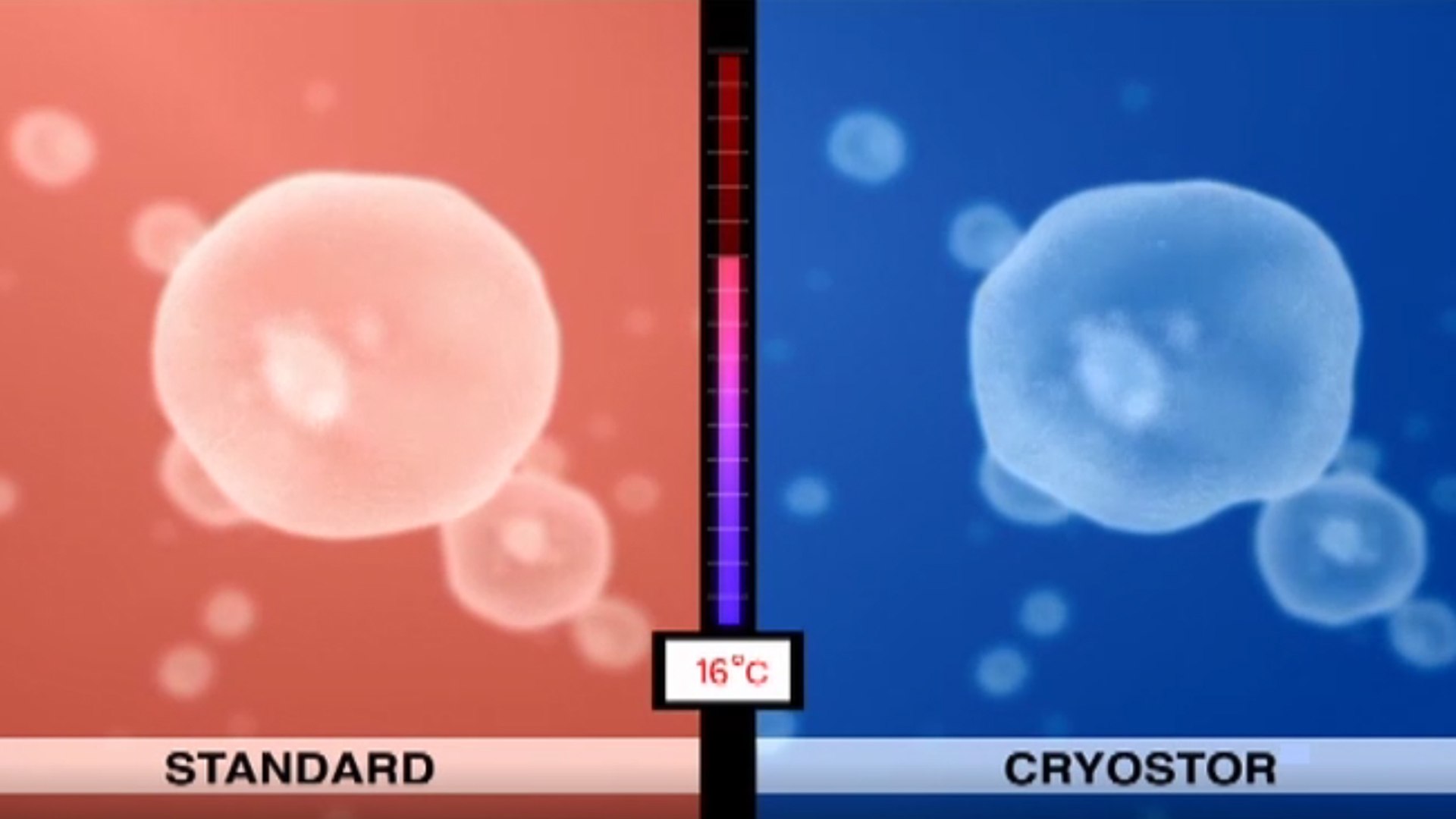Cell Freezing Reagents

Cell lines, primary cells, and genetically-modified cell stocks are among the most valuable and difficult-to-replace resources in the life science, biotechnology, or pharma development laboratory. Techniques and tools for appropriately freezing cells and resuscitating them from cryostorage in liquid nitrogen are among the most critical methods in cell culture. Preventing the formation of intracellular ice crystals and minimizing cell stress is paramount to maintaining cell viability during cryopreservation. We offer an extensive line of sterile-filtered, application-tested cryoprotectants like DMSO as well as ready-to-use cell freezing media with and without DMSO that are designed to maximize cell viability during the freezing and thawing processes.
Products

Ready-to-use Cell Freezing Media
Convenient cell freezing media reagents eliminate the need to titrate DMSO concentrations, and are also available in DMSO-free formulations.
- CryoStor® cell cryopreservation media is available in 2%, 5%, and 10% concentrations, as well as a DMSO-free formulation, CryoSOFree™.
- pZerve™ is a cryopreservation solution for serum-containing or serum-free culture that does not contain dimethyl sulfoxide (DMSO), fetal bovine serum or other animal-derived ingredients
- EmbryoMax® 2X Freezing Medium for ES (embryonic stem) cells, formulated with 20% DMSO & fetal bovine serum
- HypoThermosol® FRS Preservation Solution enhances and extends storage of cells, tissues, and organs at 2 – 8 °C
DMSO (Dimethyl Sulfoxide) for Cell Cryopreservation
Dimethyl sulfoxide or DMSO is an organic solvent that is used as a cryoprotectant when cells are frozen down for cryostorage. As a component of cell freezing media, DMSO protects cells by preventing the formation of both extracellular and intracellular ice crystals. Choose from DMSO reagents that
|
|
Related Technical Articles
- CryoStor® Cryopreservation Protocol
Cryopreservation efficacy - which includes post-thaw recovery, viability, and functionality is of importance to both research and clinical applications. The cumulative stresses that result from the cryopreservation process and suboptimal freeze media result in cell death from necrosis and apoptosis.
- Cell Culture Fundamentals: Cryopreservation and Storage of Cell Lines
Overview on liquid nitrogen storage and freezing of cell stocks for cell line cryopreservation purposes. Free ECACC handbook download.
Related Videos
Video: Crystor Cryopreservation Protocol
Watch demonstrated procedures for freezing, storage, and thawing of cells, as well as a viability assessment of cells post-thaw.
Video: Cell Freezing Tips
Freezing cells and preserving cell lines is important for maintaining a lab’s valuable resources over the years. This tutorial explains the protocol for cellular cryopreservation and the key considerations when freezing cell stocks. Learn how to minimize damage to your cells during freezing and about the solutions that can be used as cryopreservation media.
To continue reading please sign in or create an account.
Don't Have An Account?
